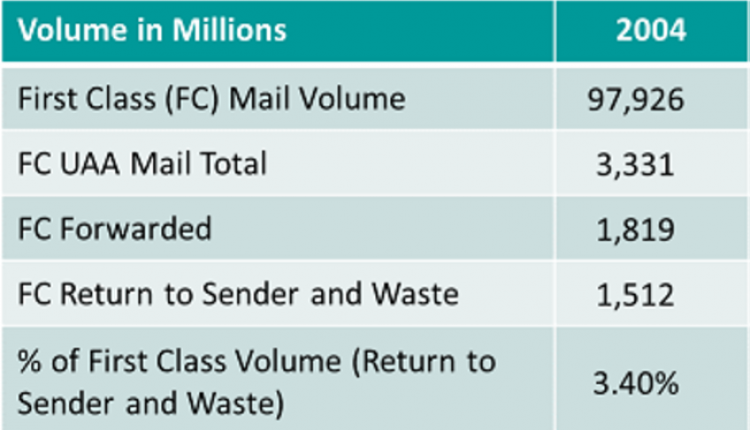In Calcutta, India, slums are common. They house thousands of people, yet residents have no official address and thus no way to apply for government services, social benefits, or even a train pass. They cannot open bank accounts and may not be able to get health care. In effect, they have no legal identity or social standing. They do not exist.
Enter the Hope Foundation and GO Code, an Irish company that has developed a digital coding system. Together, they are trying to tackle an intractable problem in the developing world: how to provide an address to the 4 billion people in the world who do not have one, and thus allow full participation in society. GO Code has launched Addressing the Unaddressed, an effort modeled after the Universal Postal Union's (UPU) ongoing global initiative to provide an address for everyone in the world. Alex Pigot, developer and principal of GO Code, preaches the possibilities of doing so by using geo-coordinates, or a location's longitude and latitude coordinates. With geocoding, a dwelling can get an address even if a community is not permanent, such as a refugee camp, or has no street names or formal addressing system.
In Calcutta, the Hope Foundation has used the GO Code system to assign a unique identity to each dwelling in the unplanned settlement so the foundation could track and identify every resident of the settlement. The residents got an address - an alpha-numeric series - based on their dwelling's geo-coordinates, which allowed them to apply for social benefits, obtain a train pass, open a bank account, or access medical services. The foundation maintains the database of addresses and can use the information to track progress of its programs and to identify and help individual citizens.
The Calcutta effort, while highly successful, also illustrates the inherent difficulty of assigning location codes in some parts of the world. "It [addressing] is a piece of the national infrastructure and government is the keeper, but that doesn't get us to a person who doesn't have an address," Pigot noted. "Sometimes, you have to bypass the gatekeepers."
At a June roundtable discussion hosted by the U.S. Postal Service's Office of Inspector General (OIG), Pigot presented his overview of the work the Hope Foundation and GO Code have done in the slums of India. The OIG organized a roundtable at the National Postal Museum to broaden discussion on an OIG white paper that studied the value of the ZIP Code to the U.S. economy. The paper made headlines in the spring with its finding that the socio-economic benefit of the ZIP Code is worth almost $10 billion. (Link to article. https://www.uspsoig.gov/foia_files/rarc-wp-13-006.pdf) With numerous addressing and postcode experts in attendance at the roundtable, the discussion readily evolved from insights on the value of a post code system to the importance of a comprehensive addressing system throughout the world. The group echoed many of the issues raised by the UPU in its addressing initiative.
Another participant of the OIG roundtable, Xinhang Shen, developer of Natural Area Coding System software, recommended that all countries migrate to an entirely new addressing standard, even developed countries that have sophisticated addressing and post code systems. He envisions his Natural Area Coding, which uses a grid system to assign 10-digit codes to locations, as the new ZIP Code for the 21st century because it would eliminate the problems associated with different languages on international mail, and it would provide a single standard among countries.
Shen's system sets a code to a precise location, using a series of grids to divide the world into 30 equal sections of latitude and longitude. The system then assigns a 10-character code to pinpoint a location on that grid, within 10 meters on a map. Among the advantages of Natural Area Coding, Shen said, is that it is language and database independent, valid for both areas and locations, and available for every house, building, or other location in the world. It can be used to speed dispatching of emergency services, and to locate and document emergency sites reliably and quickly. Shen noted that a handful of countries without a modern addressing system have adopted the Natural Area Coding system, including Lebanon, Mongolia, and Nigeria.
With more than one solution for providing addresses to the unaddressed, roundtable attendees were particularly mindful of the dangers of working at cross purposes for what is ultimately the same overarching goal. Richard Abas, developer of the Geotude system being deployed in Malaysia, said it doesn't matter which addressing standards is chosen; it is important that the world agrees on one standard.
"In 1884, the International Meridian Conference was held in Washington to set a prime meridian and it determined Greenwich would be 0 degrees. U.S. leadership set it as the standard," Abas noted. "A leader just needed to choose it."
In his presentation, GO Code's Pigot reached a similar conclusion on the role the United States could play. "The Postal Service could champion a modern system of addressing for every person on the planet," he said.
Kate Muth is a freelance writer who has studied and written on postal topics for 20 years. She also has done consulting work for a wide range of clients, including the Office of Inspector General. However, she had no involvement in the ZIP Code paper.
Enter the Hope Foundation and GO Code, an Irish company that has developed a digital coding system. Together, they are trying to tackle an intractable problem in the developing world: how to provide an address to the 4 billion people in the world who do not have one, and thus allow full participation in society. GO Code has launched Addressing the Unaddressed, an effort modeled after the Universal Postal Union's (UPU) ongoing global initiative to provide an address for everyone in the world. Alex Pigot, developer and principal of GO Code, preaches the possibilities of doing so by using geo-coordinates, or a location's longitude and latitude coordinates. With geocoding, a dwelling can get an address even if a community is not permanent, such as a refugee camp, or has no street names or formal addressing system.
In Calcutta, the Hope Foundation has used the GO Code system to assign a unique identity to each dwelling in the unplanned settlement so the foundation could track and identify every resident of the settlement. The residents got an address - an alpha-numeric series - based on their dwelling's geo-coordinates, which allowed them to apply for social benefits, obtain a train pass, open a bank account, or access medical services. The foundation maintains the database of addresses and can use the information to track progress of its programs and to identify and help individual citizens.
The Calcutta effort, while highly successful, also illustrates the inherent difficulty of assigning location codes in some parts of the world. "It [addressing] is a piece of the national infrastructure and government is the keeper, but that doesn't get us to a person who doesn't have an address," Pigot noted. "Sometimes, you have to bypass the gatekeepers."
At a June roundtable discussion hosted by the U.S. Postal Service's Office of Inspector General (OIG), Pigot presented his overview of the work the Hope Foundation and GO Code have done in the slums of India. The OIG organized a roundtable at the National Postal Museum to broaden discussion on an OIG white paper that studied the value of the ZIP Code to the U.S. economy. The paper made headlines in the spring with its finding that the socio-economic benefit of the ZIP Code is worth almost $10 billion. (Link to article. https://www.uspsoig.gov/foia_files/rarc-wp-13-006.pdf) With numerous addressing and postcode experts in attendance at the roundtable, the discussion readily evolved from insights on the value of a post code system to the importance of a comprehensive addressing system throughout the world. The group echoed many of the issues raised by the UPU in its addressing initiative.
Another participant of the OIG roundtable, Xinhang Shen, developer of Natural Area Coding System software, recommended that all countries migrate to an entirely new addressing standard, even developed countries that have sophisticated addressing and post code systems. He envisions his Natural Area Coding, which uses a grid system to assign 10-digit codes to locations, as the new ZIP Code for the 21st century because it would eliminate the problems associated with different languages on international mail, and it would provide a single standard among countries.
Shen's system sets a code to a precise location, using a series of grids to divide the world into 30 equal sections of latitude and longitude. The system then assigns a 10-character code to pinpoint a location on that grid, within 10 meters on a map. Among the advantages of Natural Area Coding, Shen said, is that it is language and database independent, valid for both areas and locations, and available for every house, building, or other location in the world. It can be used to speed dispatching of emergency services, and to locate and document emergency sites reliably and quickly. Shen noted that a handful of countries without a modern addressing system have adopted the Natural Area Coding system, including Lebanon, Mongolia, and Nigeria.
With more than one solution for providing addresses to the unaddressed, roundtable attendees were particularly mindful of the dangers of working at cross purposes for what is ultimately the same overarching goal. Richard Abas, developer of the Geotude system being deployed in Malaysia, said it doesn't matter which addressing standards is chosen; it is important that the world agrees on one standard.
"In 1884, the International Meridian Conference was held in Washington to set a prime meridian and it determined Greenwich would be 0 degrees. U.S. leadership set it as the standard," Abas noted. "A leader just needed to choose it."
In his presentation, GO Code's Pigot reached a similar conclusion on the role the United States could play. "The Postal Service could champion a modern system of addressing for every person on the planet," he said.
Kate Muth is a freelance writer who has studied and written on postal topics for 20 years. She also has done consulting work for a wide range of clients, including the Office of Inspector General. However, she had no involvement in the ZIP Code paper.





